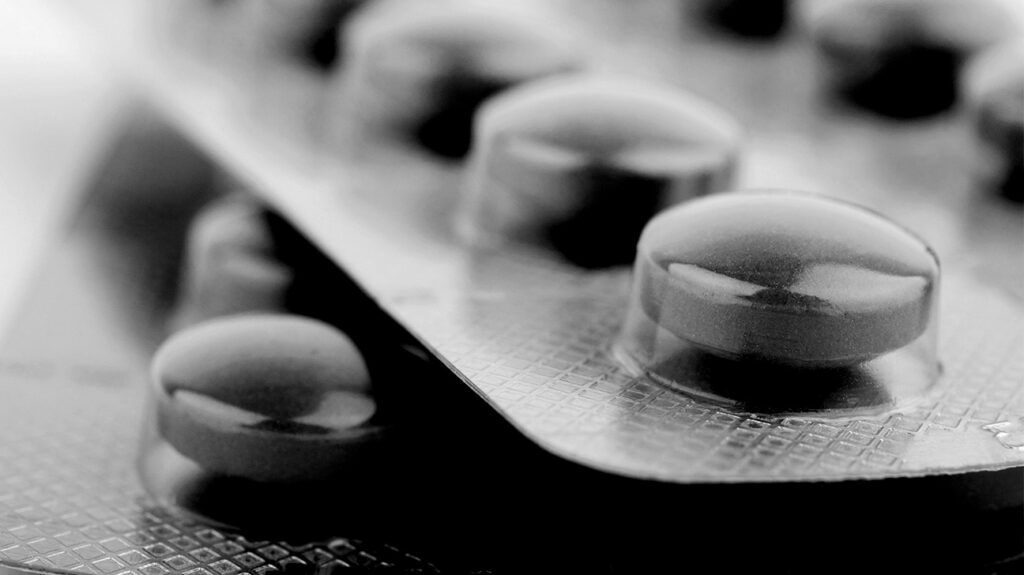Taking prednisone can make the liver resistant to insulin, raising blood sugar levels and potentially leading to steroid-induced diabetes. Steroids may also worsen existing diabetes symptoms.
Prednisone is a steroid that works similarly to cortisol, a hormone that the adrenal glands usually produce in response to stress.
People use steroids to treat a wide range of conditions, including autoimmune disorders and inflammatory conditions, such as arthritis. They work by reducing immune activity and inflammation, helping prevent tissue damage.
However, steroids can also affect how the body reacts to insulin, another hormone that controls the sugar levels in the blood. As a result, people with or at risk of diabetes need to speak with a doctor before taking steroids.

Prednisone and other steroids can cause a spike in blood sugar (glucose) by making the liver resistant to insulin.
The pancreas
When blood sugar levels are high, the pancreas secretes insulin, which travels to the liver.
The arrival of insulin in the liver triggers a drop in the amount of sugar this organ typically releases to fuel the cells. Instead, sugar enters the cells straight from the bloodstream, which is a process that reduces overall blood sugar concentration.
Steroids can make the liver less sensitive to insulin because they cause it to carry on releasing sugar, even if the pancreas is also releasing insulin. This continued release of sugar triggers the pancreas to stop producing the hormone.
If this process continues, it causes insulin resistance. The cells no longer respond to insulin, regardless of whether the body produces it or a person injects it to control diabetes.
Doctors refer to this condition as steroid-induced diabetes.
In steroid-induced diabetes, the cells fail to react appropriately to insulin.
Diabetes is a condition that causes blood sugar levels to be consistently high. There are
- Type 1 diabetes: In type 1 diabetes, the pancreas cannot produce any insulin.
- Type 2 diabetes: In type 2 diabetes, either the pancreas cannot produce enough insulin or the cells do not react to the insulin circulating in the body.
Steroid-induced diabetes should resolve soon after the conclusion of steroid treatment. Type 1 and type 2 diabetes are lifelong conditions requiring ongoing management.
The symptoms of steroid-induced diabetes are the same as those of type 1 and type 2 diabetes and gestational diabetes, which affects some people during pregnancy.
Symptoms may include:
- dry mouth
- thirst
- feeling tired
- unintentional weight loss
- frequent urination
- blurred vision
- nausea and vomiting
- dry, itchy skin
- tingling or loss of feeling in the hands or feet
As with other types of diabetes, a person with steroid-induced diabetes may need to make lifestyle adjustments to manage their blood sugar.
These changes
When steroids trigger diabetes, blood sugar may spike within hours of taking a dose.
People taking steroids need to regularly monitor their blood sugar levels and take oral medication or insulin if these levels become too high.
Generally, blood sugar levels should return to their previous levels after finishing steroid treatment. However, some people may develop type 2 diabetes and need appropriate follow-up treatment with oral medication or insulin therapy.
The risk of steroid-induced diabetes may be higher in people taking large doses of steroids over extended periods.
Other risk factors for type 2 diabetes may
- being 35 years or older
- overweight or obesity
- a family history of type 2 diabetes
- a personal history of gestational diabetes
- sedentary lifestyle
Taking prednisone and other steroids may be unavoidable for people with certain conditions. These medications may give a person the best likelihood of recovery or pain relief, even if they also have diabetes.
People with diabetes need to take certain steps before starting a course of prednisone or a similar medication.
For example, they need to inform their doctor of their diabetes diagnosis. In some cases, a doctor may be able to prescribe a different drug that does not interfere with blood sugar levels.
If this is not possible, they may need to make adjustments to the prescribed dosage to keep blood sugar levels within the target range.
While taking steroid medications, doctors may recommend that people with diabetes consider:
- checking blood glucose levels more often than usual — potentially four or more times per day
- increasing the dosage of insulin or oral medication, depending on blood sugar levels and if a doctor advises it
- monitoring urine or blood ketones
- consulting a doctor immediately if blood sugar levels rise too high while taking steroids and the insulin or oral medication dose is insufficient to bring the levels down
- carrying glucose tablets, juice, or candy at all times in case blood sugar levels drop suddenly
As people gradually reduce their steroid dosage, they also need to reduce the equivalent dosage of insulin or oral medication until it returns to the original dosage. It is
People with diabetes may need to take medications for other conditions. For example, they may need to take oral hypoglycemics,
- biguanides such as metformin (Glucophage)
- alpha-glucosidase inhibitors such as acarbose (Glucobay, Precose)
- sulfonylureas such as glyburide (Micronase, DiaBeta)
- meglitinides such as repaglinide (Prandin)
All of these drugs have the potential to interact with other medications. Before starting any new medication, people need to speak with a doctor about potential interactions and adverse reactions.
Doctors might include insulin therapy in a treatment plan for steroid-induced diabetes if an individual does not respond to lifestyle changes or oral medications.
Many medications interact with insulin, including:
People who have diabetes always need to discuss possible drug interactions with their doctor.
How long does it take for steroid-induced diabetes to go away?
The symptoms of steroid-induced diabetes usually resolve soon after a person stops taking steroids.
How fast does prednisone raise your blood sugar?
Blood sugar will usually spike about 4 to 8 hours after taking prednisone.
What should someone do if they have high blood sugar after stopping prednisone?
If a person stops taking prednisone but their sugar levels remain high, they should need to speak with their doctor for an evaluation. The doctor can recommend the best course of action.
In some cases, taking steroids can lead to insulin resistance, known as steroid-induced diabetes. People with symptoms of high blood sugar while taking steroids such as prednisone to treat another condition need to consult a doctor.
Similarly, a person with type 1 or type 2 diabetes needs to ask their doctor if there is an alternative medication they should take instead of steroids. As well as causing a spike in blood sugar, prednisone can interact with insulin injections.
In either case, the doctor may suggest another treatment or recommend continuing steroids while checking their blood sugar regularly.


